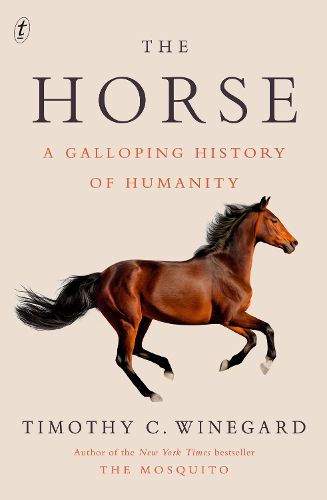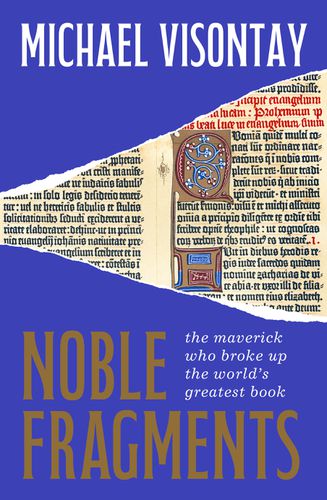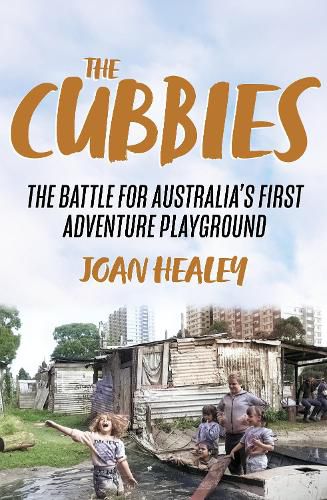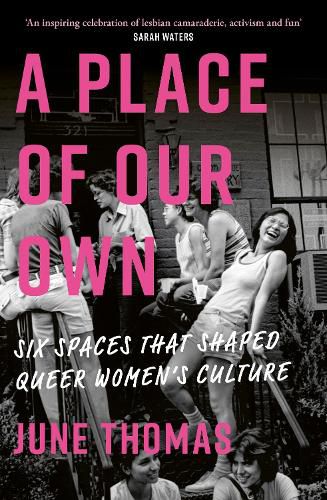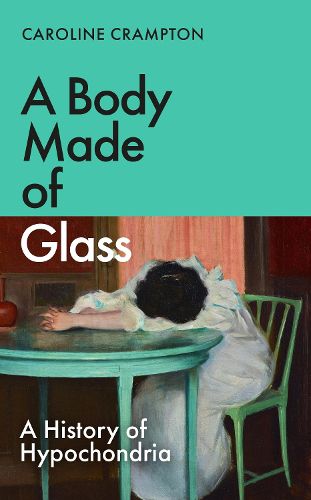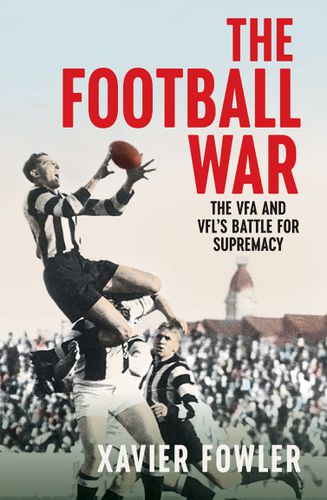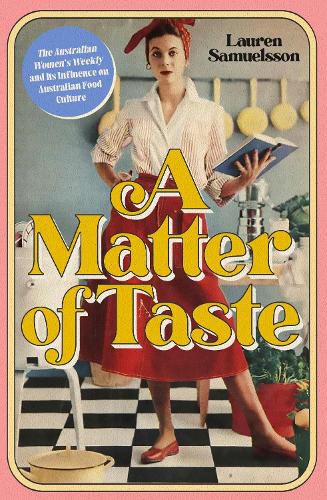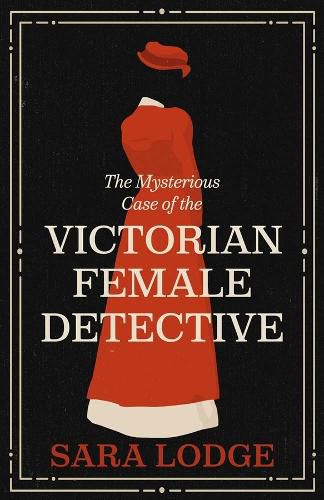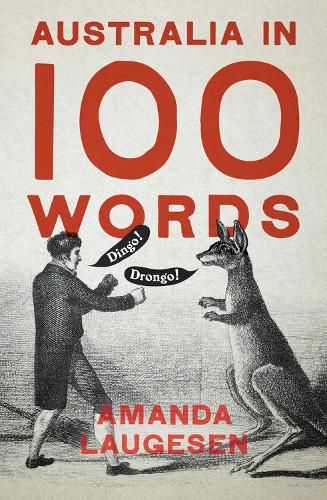If you're interested in the Roman Empire or World War II, there are plenty of books out there to answer every question you might have. But if you're keen to wander off the beaten path and explore some more niche areas of history, these are the books for you! From Australia's culinary identity to the infamous sale of the first bible, to an exploration of hypochondria, these authors have done a deep dive and put together fascinating accounts of history's less-told stories.
Have you ever thought about the pivotal role horses have played in human history?
The Horse by Timothy C. Winegard
The Horse is an epic history that begins more than 5500 years ago on the windswept grasslands of the Eurasian Steppe when the first horse was tamed and an unbreakable bond with humans was forged – a bond that transformed the future of humanity.
Since that pivotal moment, the horse has carried the fate of civilisations on its powerful back. For millennia it was the primary mode of transport, an essential farming machine, a steadfast companion and a formidable weapon of war. With its unique combination of size, speed, strength and stamina, the horse has influenced every facet of human life and widened the scope of human ambition and achievement.
If you're a reader who doesn't like to dog-ear their book pages, prepare to be horrified by this story of literary vandalism
Noble Fragments by Michael Visontay
One hundred years ago, Gabriel Wells, a New York bookseller, committed a crime against history. He broke up the world's greatest book, the Gutenberg Bible, and sold it off in individual pages. This is the story of an Australian man's hunt for those fragments and his family's debt to an act of literary vandalism.
Was the break-up a sacrilege or a canny deal? New Yorkers were divided. For every frown of disapproval, there was a lick of the lips. It was the Roaring Twenties, the Gatsby era of fabulous wealth. Tycoons were in a feeding frenzy to acquire items that would demonstrate their refinement. Wells marketed the pages as 'Noble Fragments', they sold like hot cakes, and he died a rich man.
Half a century later, Sydney journalist Michael Visontay stumbled upon a mysterious legal document that linked Wells to his own family. He became obsessed by the Gutenberg's invisible imprint on his life, and set out to track down the pages of the broken bible.
Get drawn into the fascinating world of Fitzroy in the seventies
The Cubbies by Joan Healey
This is the rollicking tale of Australia's first true adventure playground, when children were allowed to use a patch of public land as their own backyard, to play in freely as they wished, not as adults directed them. It's also a slice of life in the exciting Whitlam days of the '70s, when change was in the air, hope sparkled and Fitzroy, in the heart of Melbourne, was emerging from run-down shabbiness into a hip neighbourhood.
The Cubbies is told through personal experience and observations by Joan Healey, who lived through the adventures of its early days, while confronting 'those who know best' who tried to stop it from happening. It's a tale of battles with local police and the Catholic church, but also of visionary politicians and bureaucrats on both sides supporting children in this venture, while others made devious attempts to close the place.
Learn more about queer culture through the history of gay and lesbian spaces
A Place of Our Own by June Thomas
For as long as queer women have existed, they've created gathering grounds where they can be themselves. From the intimate darkness of the lesbian bar to the sweaty camaraderie of the softball field, these spaces aren't a luxury – they're a necessity for queer women defining their identities.
Blending memoir, archival research and interviews, journalist June Thomas invites readers into six iconic lesbian spaces over the course of the last sixty years, including the rural commune, the sex toy boutique, the holiday destination and the feminist bookstore. She also illuminates what is gained and lost in the shift from the exclusive, tight-knit women's spaces of the '70s toward today's more inclusive yet more diffuse LGBTQ+ communities.
Forget about gory pre-anaesthetic amputations, this side of medical history is fascinating and much less bloody
A Body Made of Glass by Caroline Crampton
An ache, a pain, a mysterious lump, a strange sensation in some part of your body, the feeling that something is not right. The fear that something is, in fact, very wrong. These could be symptoms of illness. But they could also be the symptoms of hypochondria – an enigmatic condition that might be physiological or psychological or both.
In this landmark book, Caroline Crampton tells the story of hypochondria, beginning in the age of Hippocrates and taking us right through to the wellness industry today. Along the way, we encounter successive generations of doctors positing new theories, as well as quacks selling spurious cure-alls to the desperate. Crampton also examines the gendered nature of the medical response, the financial and social factors at play, and the ways in which modern technology simultaneously feeds our fears and holds out the promise of relief.
Have you ever wondered how AFL became Victoria's favourite sport?
The Football War by Xavier Fowler
In the shadow of the impending Second World War, a battle for control kicked off between two rival factions in Australian Rules football – the powerful upstart Victorian Football League, comprising the strongest inner-city clubs, and the struggling Victorian Football Association, which sought new teams and spectators in Melbourne's growing outer suburbs. The conflict spilled out of Victoria, inciting division and discord in almost every corner of the country.
From bitter personal rivalries to the lasting impacts on the game itself, The Football War is the untold story of the battle for supremacy on- and off-field, and the fight for the soul of Australian Rules.
For a fascinating deep-dive into the history of kids' books
The Haunted Wood by Sam Leith
The stories written for and about children are a window into our deepest hopes, joys and anxieties. They reveal our past – collective and individual, remembered and reimagined – and invite us to dream up a different future. More vivid, more real than books we encountered mere months ago, our childhood reading stays with us forever.
In a pioneering new history of the genre, The Haunted Wood explores children's literature at its best, from Aesop to Julia Donaldson. Providing startling insight into how authors might reflect a nation's psyche – be it through the imperial fantasies of Rudyard Kipling, the pastoral adventures of Beatrix Potter or the anarchic post-war heroes of Roald Dahl – Sam Leith offers an exquisite account of childhood, as told through our most beloved stories.
You've probably eaten a birthday cake that came from a Women's Weekly cookbook, but have you considered the extent of the magazine's cultural impact?
A Matter of Taste by Lauren Samuelsson
Since its inception in 1933, The Australian Women's Weekly has been Australia's highest-selling women's magazine, in large part due to its hugely popular cookery section and companion cookbooks. From birthday cakes to barbecues, mock meat to Chinese food, the Weekly taught generations of Australians what to eat and how to cook it at home. Yet despite this, the magazine and its influence on Australian cooking has been overlooked in histories of Australian food. A Matter of Taste restores the Weekly to its rightful place at the centre of Australia's food culture.
Meticulously researched and beautifully presented, A Matter of Taste takes you on an entertaining, nostalgic and insightful culinary journey through Australian food, culture and history.
Take a break from crime novels and delve into the stories of real women who sleuthed on the streets of Victorian London
The Mysterious Case of the Victorian Female Detective by Sara Lodge
From Wilkie Collins to the adventures of Sherlock Holmes, the traditional image of the Victorian detective is male. Few people realise that women detectives successfully investigated Victorian Britain, working both with the police and for private agencies, which they sometimes managed themselves.
Sara Lodge recovers these forgotten women's lives. She also reveals the sensational role played by the fantasy female detective in Victorian melodrama and popular fiction; how did the morally ambiguous work of real women detectives, sometimes paid to betray their fellow women, compare with the exploits of their fictional counterparts, who always save the day? Lodge's book takes us into the murky underworld of Victorian society, revealing the many facets of the female detective.
Learn about the unacknowledged work of diplomats, politicians and spies that led to the birth of modern geography
This Earthly Globe by Andrea di Robilant
In the autumn of 1550, an anonymously authored volume containing a wealth of geographical information new to Europeans was published in Venice under the title Navigationi et Viaggi (Journeys and Navigations). This was closely followed by two further volumes that, when taken together, constituted the largest release of geographical data in history, and could well be considered the birth of modern geography.
The editor of these volumes was a little-known public servant in the Venetian government, Giovambattista Ramusio. In an enthralling narrative, Andrea di Robilant brings to life the man who used all his political skill, along with the help of conniving diplomats and spies, to democratise knowledge and show how the world was much larger than anyone previously imagined.
Did you know the history of Australia can be traced through the existence of slang like 'bonzer' and 'bogan'?
Australia in 100 Words by Amanda Laugesen
Tucker. Arvo. Sickie. Pash. Illywhacker.
There are plenty of words to choose from to tell the story of Australia, from iconic Australianisms like mateship, fair dinkum, and bogan to drop bears, budgie smugglers, and bin chickens.
And while you aren't likely to hear crikey, cobber, or wowser walking down the street, you will hear no worries, mate, and yeah nah. Words underpin myths and stereotypes of Australian identity; they have also obscured harsh realities and inequalities. Together, these words shine a spotlight on our culture, past and present.


